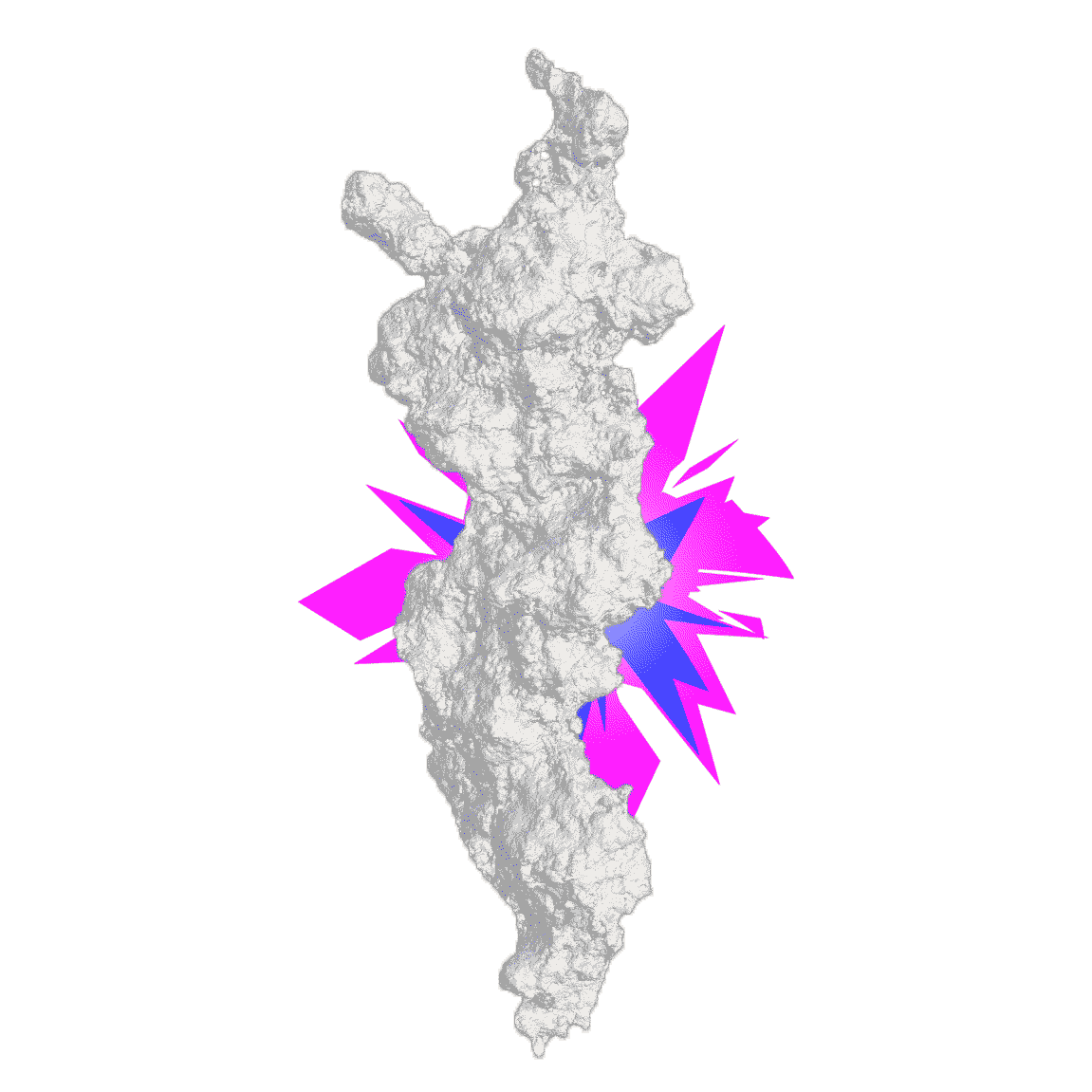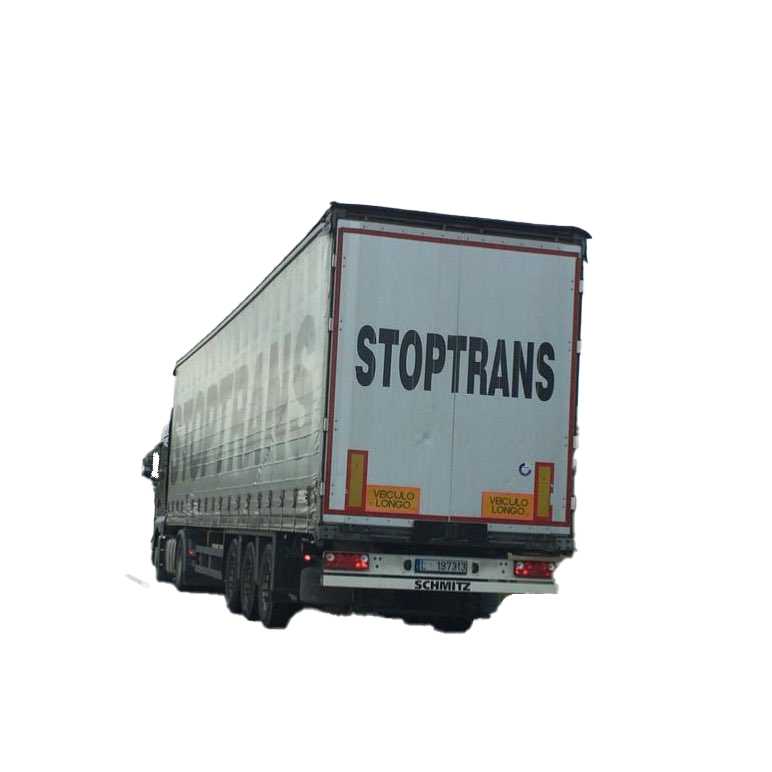Mel 4Ever
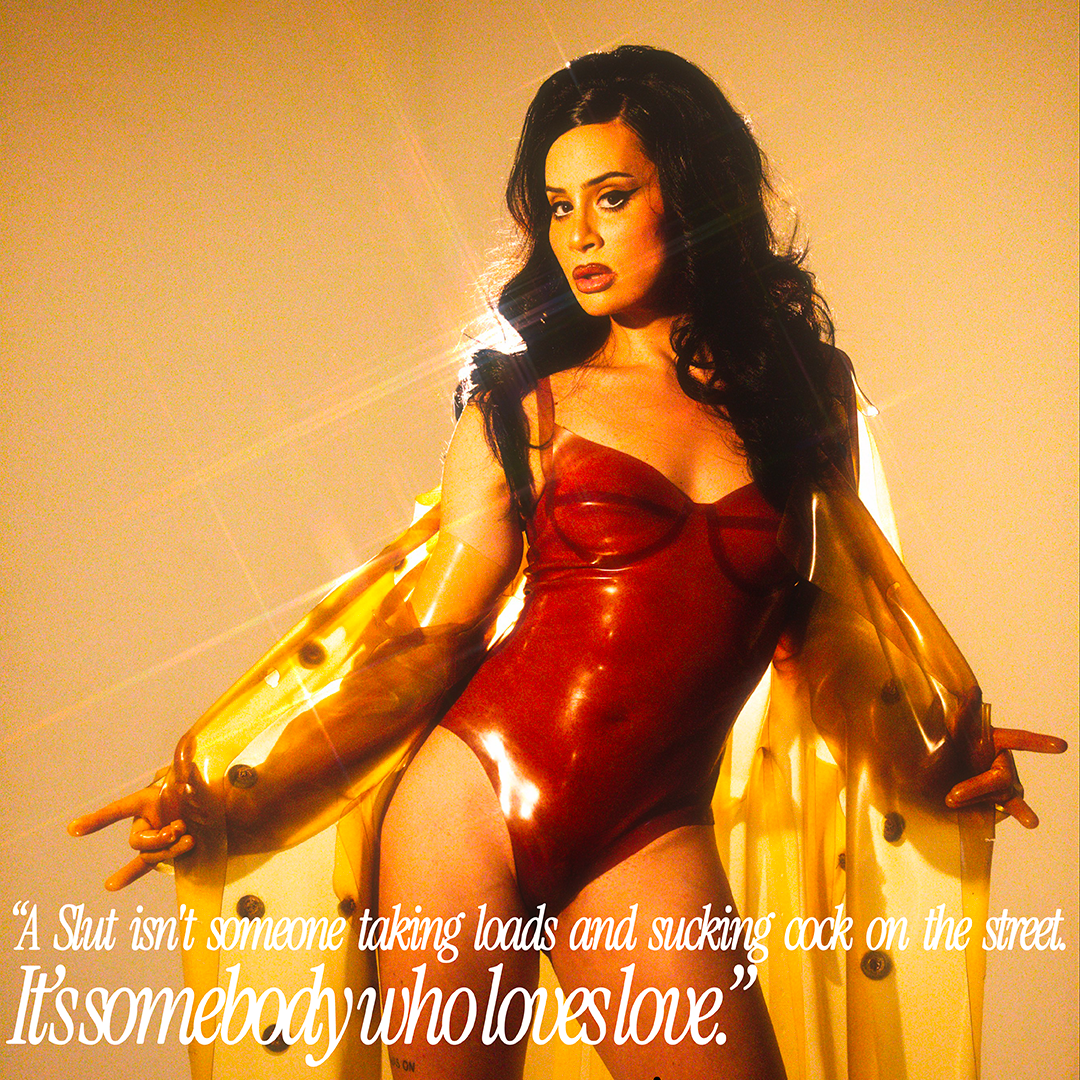
A Slut isn’t someone who is taking loads and sucking cock on the street. It’s somebody who loves love.
Mel 4Ever is ready to be a household name, and her newest EP, She Culture I, makes a solid case that the singer-songwriter-performer-diva-extraordinaire should be. The influences on She Culture are wide-ranging and make for a sonic journey that traverses themes of (trans*)misogyny, anger, euphoria, and grief in a tour-de-force display. With music equal parts emotionally impactful, witty, and danceable, the project feels far larger and more clear-minded than you’d expect from someone who’s been making music for only a couple of years. Mel’s musical journey began with her sobriety and the resolution to win a Grammy, and though at the time she hadn’t had any forays into music, her steadfast determination allowed her to release her first EP, Trannic Attack, within a year. Since then, she’s opened for Slayyyter and headlined the Bushwig Festival. Bernardo Alves, visual artist and contributing editor for Pessima, sat down with her for a chat about the new EP, her creative process, and what sluttiness means to her – among other things.
Bernardo Alves: I’ve seen you say in a bunch of other interviews that you felt like your previous EP, Tranic Attack, was sort of just you trying to get your ducks in a row and try to get your original ideas out there. This latest EP that you’ve done, She Culture I., feels a lot more personal and a little bit more focused than the debut. I was just hoping that you could describe the album in your own words a little bit so that we can get a general sense for the readers.
Mel 4Ever: Yeah, sure. With Tranic Attack (a.k.a. a trans panic attack) each song was born out of some kind of anxiety or actual panic attack that I had. I was writing all of those songs within the first couple of months of my transition, so I wrote a song about wanting to filet my skin off because I was starting to look in the mirror on my first couple of months on hormones, and I was like, “It’s not working. It’s not working. I need to change this. It needs to be different already.” And then I started becoming acutely aware of my literal skin being scarred and all of the things that were making me who I was, and I was realizing I really didn’t like these things and I had to own them regardless. Or another one was like, don’t kill yourself, panic attack.
In She Culture, the songs are definitely more focused, definitely telling more of a narrative than the previous EP. I didn’t even really intend for the music to be about my experience as a trans person, but I can’t extract my experience from my art right now; it’s such a prominent part of my day to day. I live in Brooklyn and can’t really forget the fact that I’m trans because of public transportation and the endless interaction with other people. So I started writing a little narrative about why I am the way that I am. The songs are about my experience as a trans woman so far through forces that are outside of me: it’s the feelings that I have when I open my phone and read about legislation in America and all of the political players using transness to gain a following or using fear to control people, or how men treat me in a sexual-romantic way. It’s all these other factors kind of coming at me, and it’s my way of processing that.
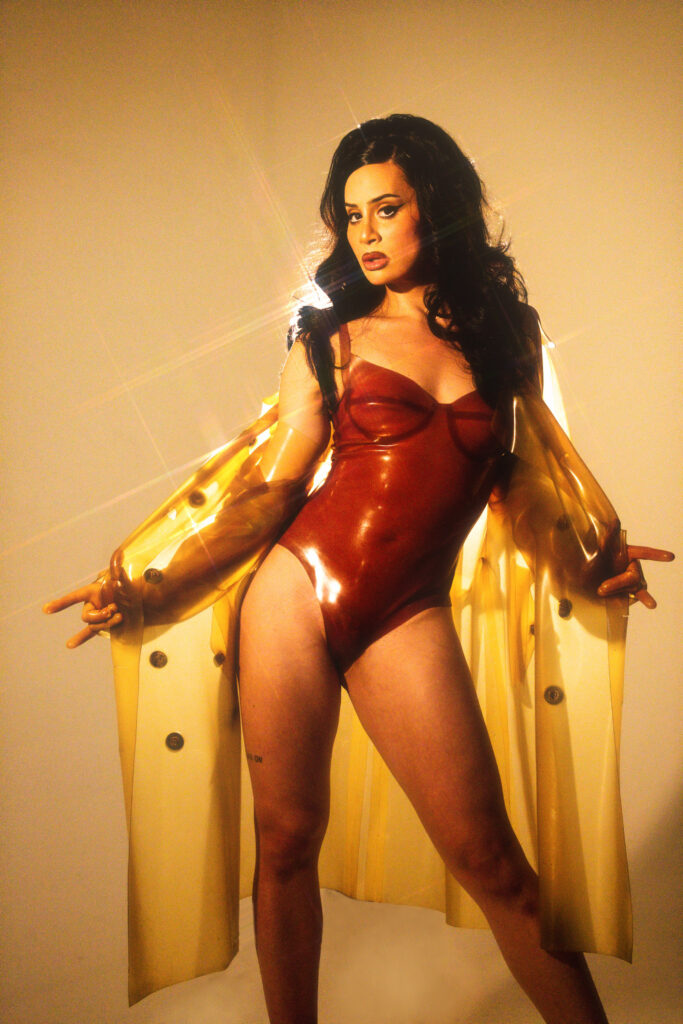
BA: As far as the narrative of the album, I do think I sort of see it. I’m just wondering if you have a clear sort of narrative arc in mind that you’re trying to portray.
M4E: So the EP starts out with a song called JK Rowling. I was really upset to find out that she was a TERF.
BA: Huge TERF.
M4E: One of her biggest arguments is that trans women don’t have the same childhood experience as cis women because trans women are not sexualized in a way that cis women are, and they’re not susceptible to predators in the way that cis women are. So I open up the EP with a story about a way that I was sexualized and traumatized as a child, and while it is different than that of a cis woman experience, it is traumatizing nonetheless. I’m bringing it up to ask, “why is that not good enough for me to be who I am?” Then we go into She Culture, which is the more fleshed out idea of that; my innocence is lost, I’m angry, and now I’m going to double down: I am a sick motherfucker and I’m going to come kill you. That kind of is the thesis. Then we go into So Cool which is like, “Okay, I’ve kind of settled into this new body, and now I’m going to have sex with a boy as a woman for the first time, remain cool”. And then we go into Big League Chew where I have realized that I actually can’t remain cool – I’m crazy, and now I’m going to bite your dick off and chew on it. And then we go into Go Bitch, which is like, now I’ve been fucked over by this boy who doesn’t want to be with me publicly, and I’m really upset, which leads us into Girl forever. I wrote that song about being followed home one night, and I was upset because I had to take on this primal feeling of protecting myself. And it felt very masculine. And I was like, “I’m really annoyed. I just want to be a girl. Why do I have to fight right now? Just leave me alone.” And so we go back through Girl forever, we go back into a mental space of now I’m angry again, and I just am frustrated and my hands are thrown in the air. And then I realized that at the end with, I Hate U, the demo version. I’m like, I hate everyone. It isn’t a happy story.
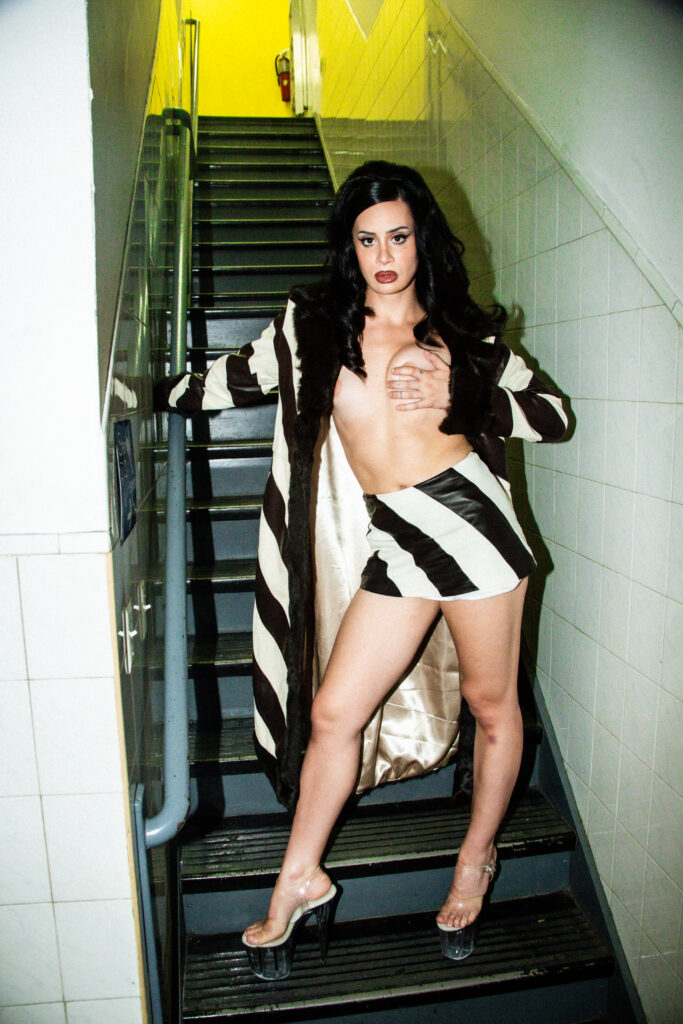
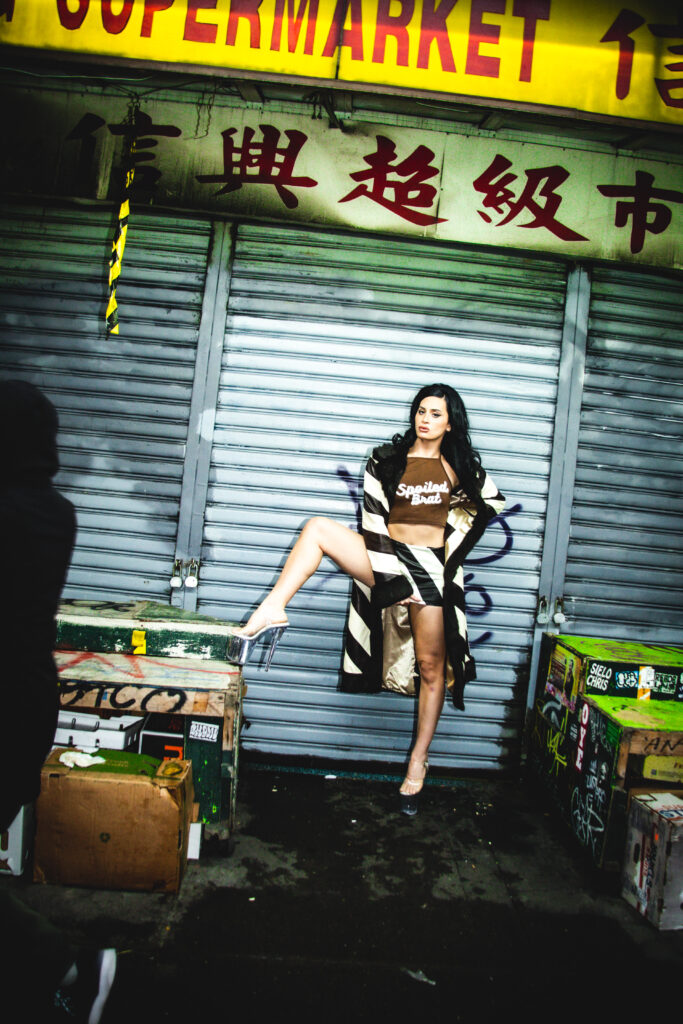
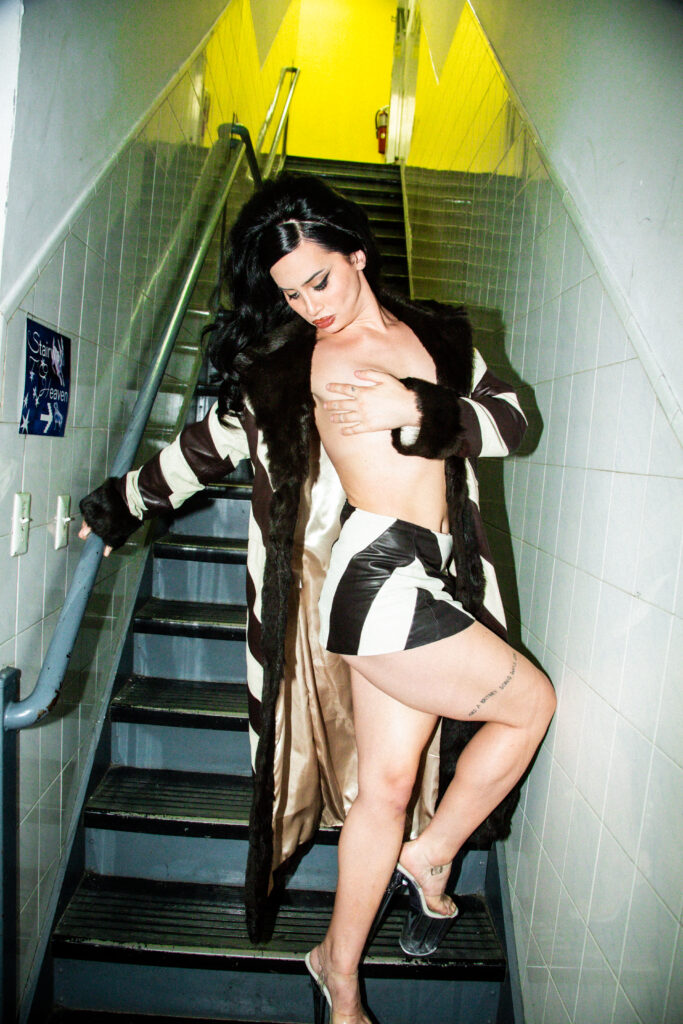
BA: I do think that there are definitely a certain sort of happy moments within the EP though, in She Culture. I thought it was interesting that in the press kit you wrote that you use “abrasive and harsh noises throughout the track because [your] transition felt as such”. But then there’s another interesting aspect to the production that I thought was almost euphoric in a way. When you’re doing the hook of, “Something ain’t right with me”, that the synths behind it sort of climb up and they’re very light and airy, and they do sort of go upwards. I read that as being almost like a reclamatory thing saying, “yeah, people may be saying that being trans is wrong, but if being trans is wrong, then fuck it: Something ain’t right with me”. It’s a very sort of almost positive outlook on that. I don’t know if I’m reading too much into that.
M4E: That’s exactly it. It’s a reclamation and it’s acceptance in the chorus, but then in the verses, it’s the wavering between anger and frustration and fighting and acceptance. So I’m angry and then I accept it, and then I’m like, “no, fuck that, I’m angry again.” But then I accept it and by the end I’m like, there’s nothing I can do and this is who I am, and that’s that.
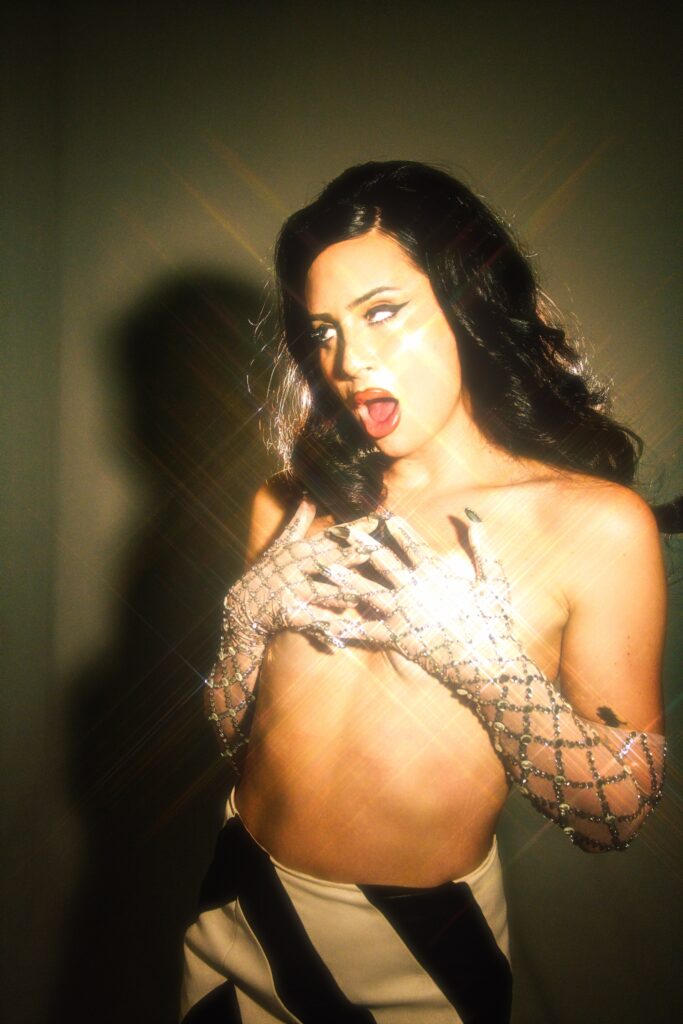
BA: […] you said that your goal is to create the perfect pop song. Could you break down for us what the components of a perfect pop song are in your opinion, and what you’ve learned from studying pop music?
M4E: Yeah, I’m literally obsessed. I’ve never been that person who’s like, “listen to this, I know the coolest shit,” kind of vibe. I grew up in Alabama and all I got served was Christian music and top 40, so I took what I could take. Even though I’m making quite indie electronic songs right now, I like pop music. I like slutty girls, I like horny girls, and love as an idea. It’s so crazy that every fucking song on the planet is literally about love. It’s bizarre. So I do study music, and by study it’s literally that I listen to the same song over and over and over and over and over and over again, and then I pick it apart until I understand every little aspect of it. A perfect pop song in my opinion is Teenage Dream. It is so increddy. It’s so good. It defines that 2010s era. And Bonnie wrote that with Ms. Katie, and… Wait, what was the question?
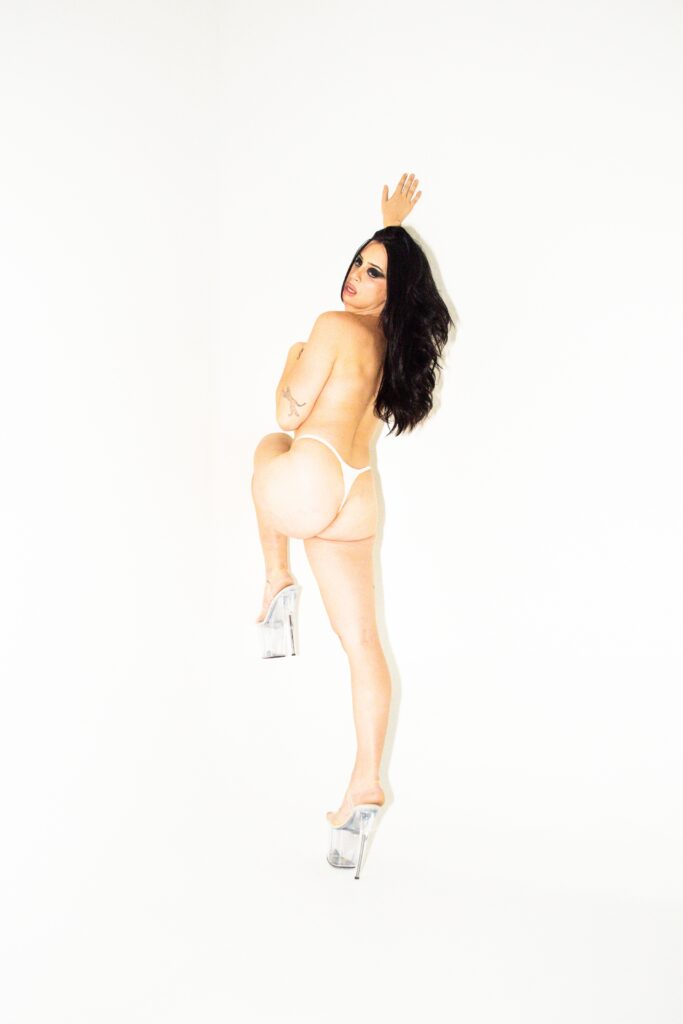
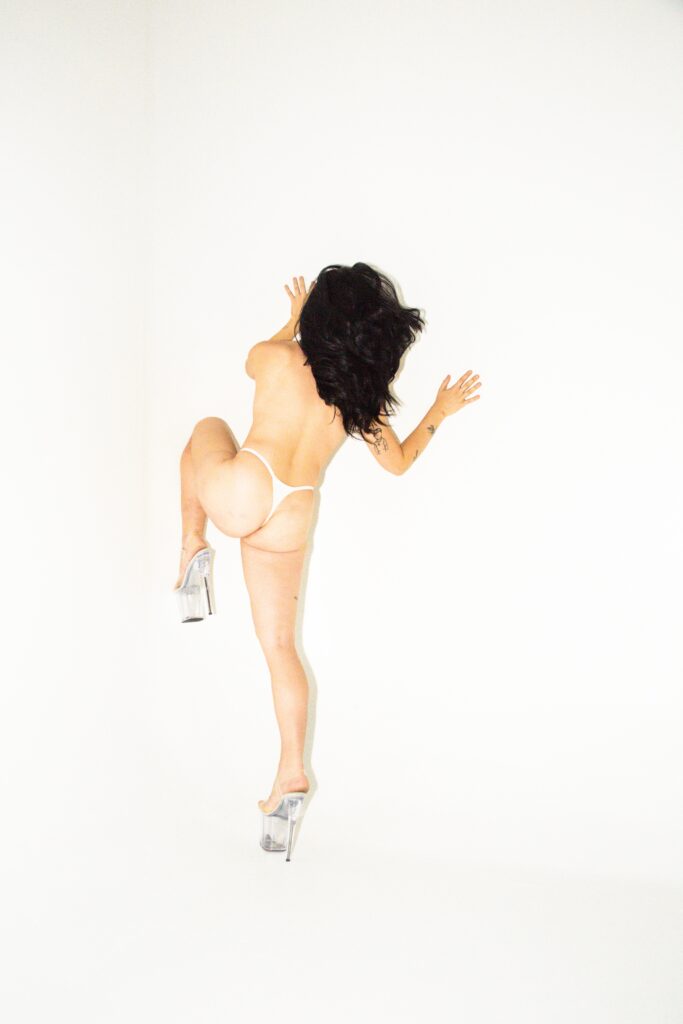
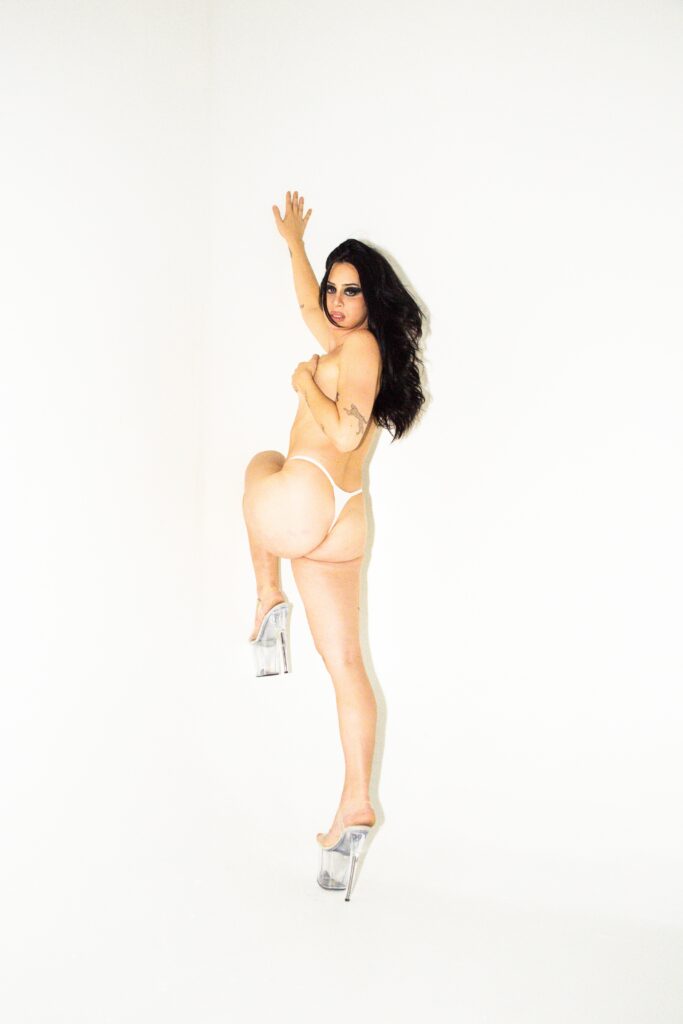
BA: What would you say makes a Teenage Dream the perfect pop song? Not that song specifically necessarily, but generally what do you think makes a perfect pop song?
M4E: Well, I think all pop music and all music in general has a divine feminine quality to it. Even the biggest rock stars and all the men out there, I’m like, “You dance and you sing on stage and you’re performing. I’m sorry, that is a feminine thing to do.” I’m not convinced any musician’s actually a man that identifies as one unless they’re trans.
Anyway, the perfect pop song kind of embodies that. It’s a song where you can throw your hands in the air and twirl around and be like, “woo!” It’s capturing that feeling. Teenage Dream is the perfect example. It’s anthemic and it’s easy to sing and easy to remember. It reminds me almost of a nursery rhyme. It’s simple and digestible, and universal in feeling. I think my answer to your question is something that encapsulates that divine feminine feeling of emotion and release; being able to hear something that someone wrote, but everyone has an example of in their own life – that’s so sickening.
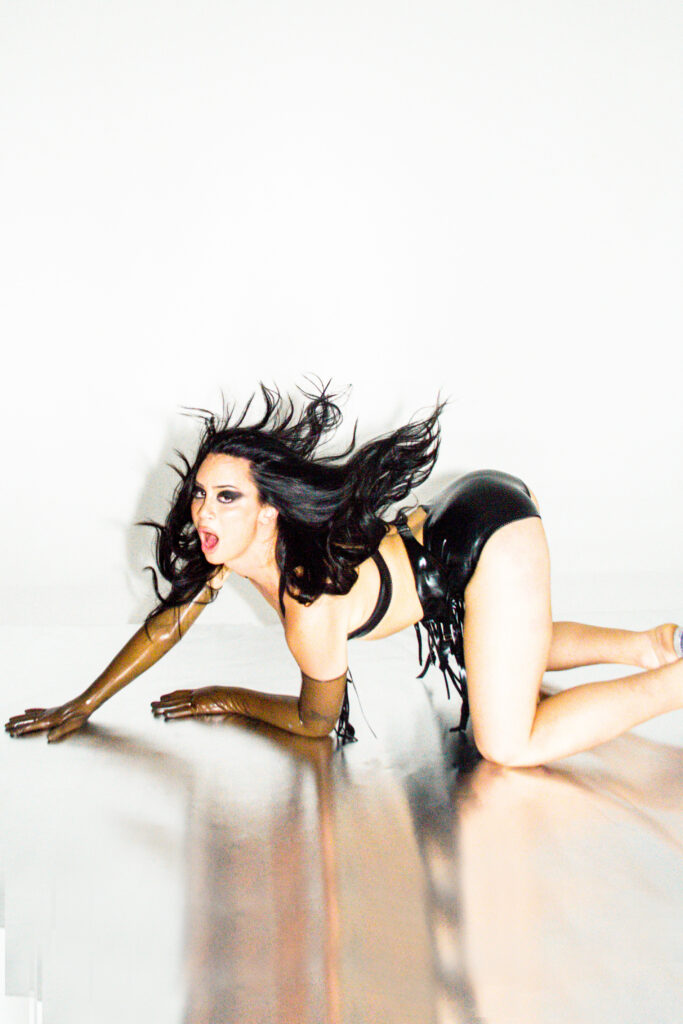
BA: Yeah, that makes sense. Of the references that I’ve seen you throw out, a big one is Ke$ha as well.
M4E: Period.
BA: And there are some Ke$ha-esque moments in your album. The synths on Girl Forever are very Ke$ha. I think it’s funny how you describe your taste as anything that’s slutty and fun, that’s the perfect way to describe a specific type of pop music, I think. I don’t think anybody would say that Adele, for example, is slutty or fun…
M4E: I definitely disagree. I think she is slutty and fun.
BA: Oh yeah?
M4E: Yes. A slut to me isn’t someone who’s taking loads and sucking cock on the street. It’s somebody who loves love, and is wanting to find that with anyone that comes across their path. She’s fucking heartbroken all the goddamn time, and she doesn’t give a shit. She’s going to go find herself another man. “Nevermind, I’ll find someone like you.” How do you think she’s going to go find that man?
BA: Yeah, okay. True.
M4E: She’s about to go suck some dick. I love Adele. I love Adele.
BA: Oh, don’t get me wrong, I like Adele too. I just always associate her more with the morning-after of a fun, slutty night.
M4E: Yeah. But yeah, that still proves my point.
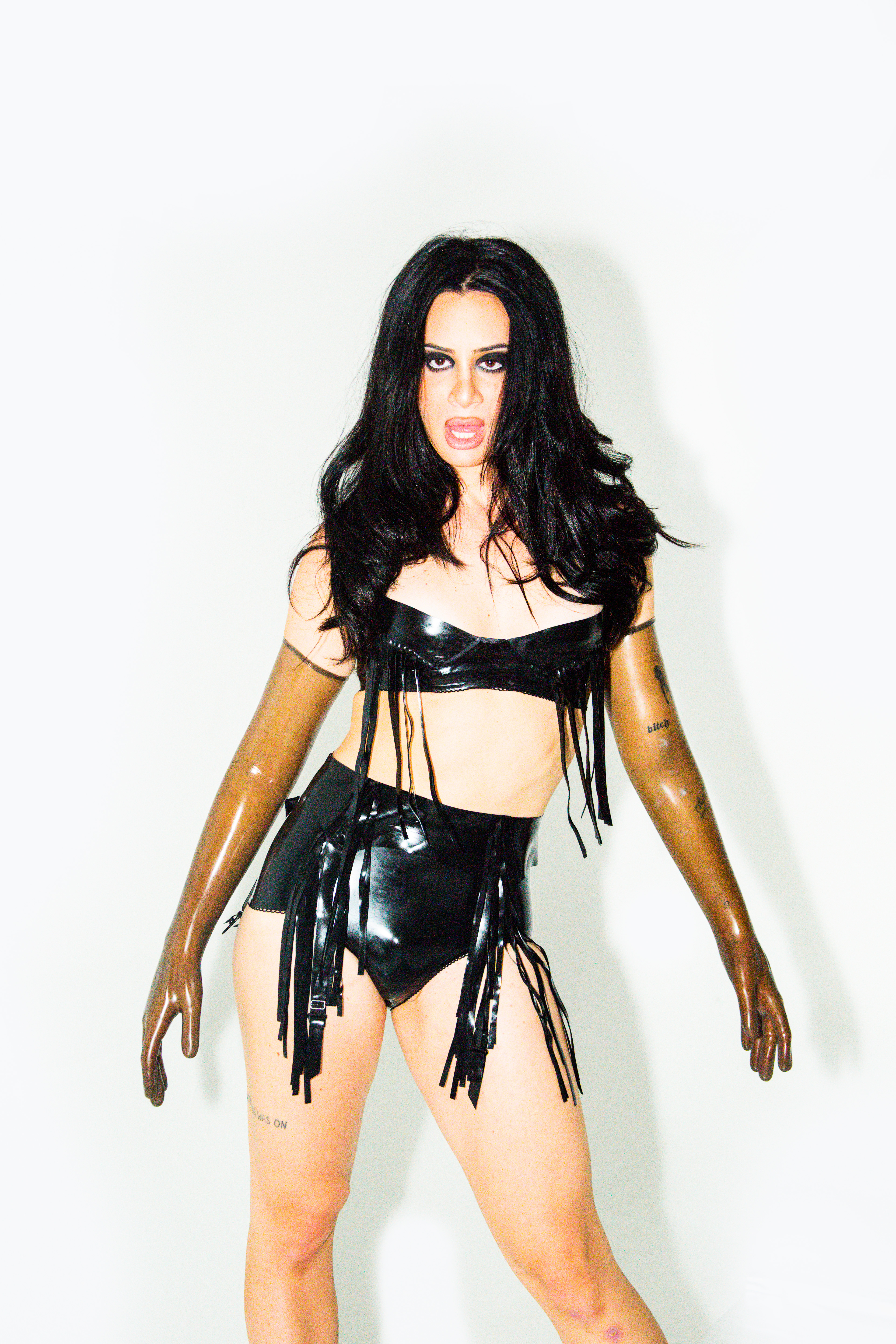
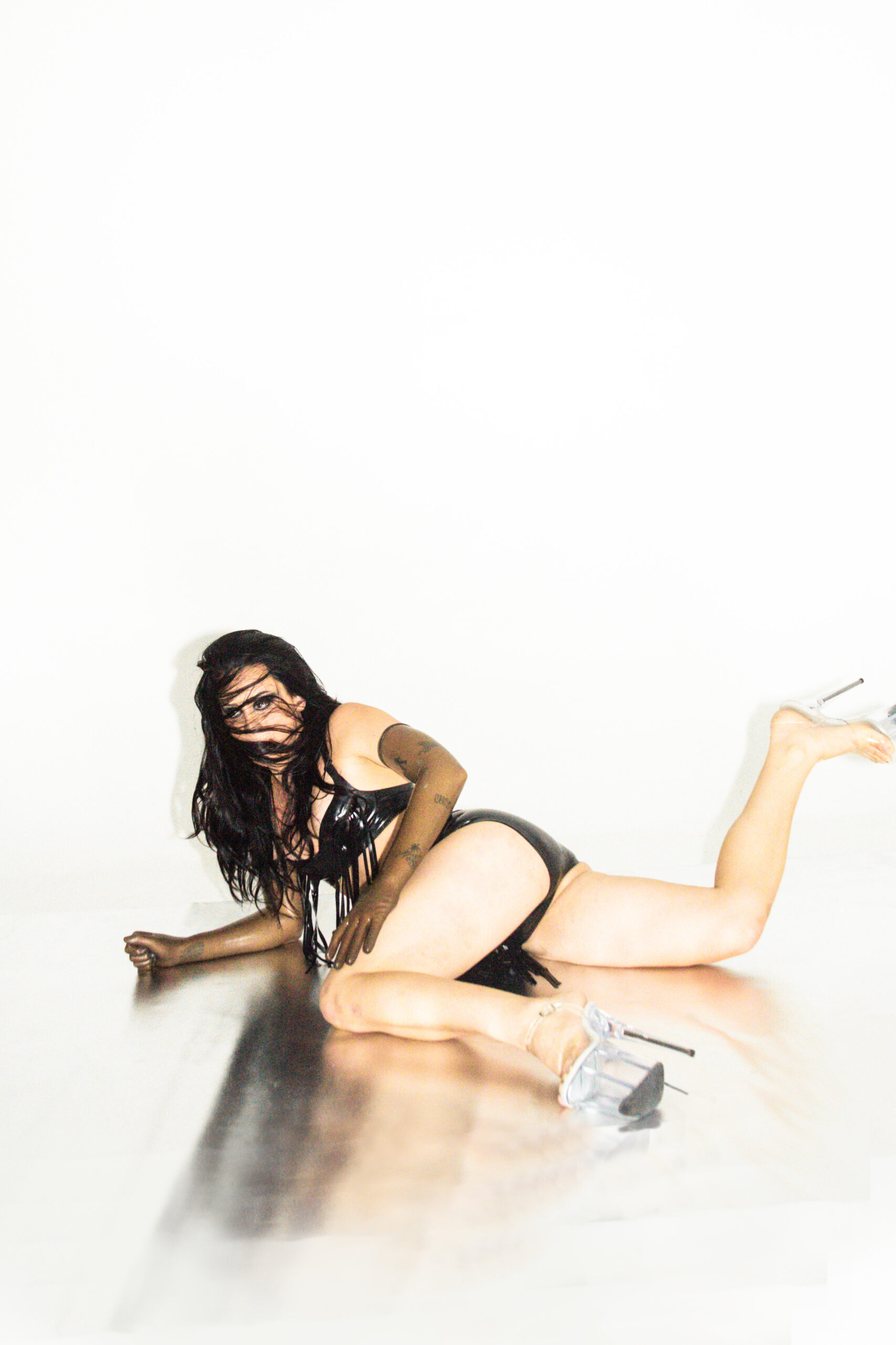
BA: I guess what I’m getting at is the danceability of a track, and I think you clearly do put a lot of emphasis on danceability in your own work. Does that come from looking for that audience participation aspect of it, the invitation for an audience to engage with the music in a physical sense? Or what it is that makes danceability such an important component?
M4E: I think that’s exactly correct. It’s the invitation to create a physical manifestation in your own way. That’s a mission of mine through music. For Big League Chew, I want your heart to raise a little bit and somehow relate to that feeling that either you’re biting my dick off or I’m biting yours off. I need that physical manifestation. I want you to walk a little faster, to dance a little harder, to jump a little higher kind of vibe. It’s very important for me. I mean, I dance like that to Adele. I really do. Rolling in the Deep, Set Fire to the Rain, I am doing that to those, so I can’t separate that.
BA: Okay, my bad. I really didn’t mean to hit a trigger with the Adele stuff.
M4E: Oh my God, you didn’t, you didn’t! I’m just using that as an example. I’m like, “Adele is dance music!” That is not the hill I’m dying on.
BA: I mean, it can be if you want. We can put that as the title of the article.
M4E: Oh my God. Wait, that’s so fucking funny.
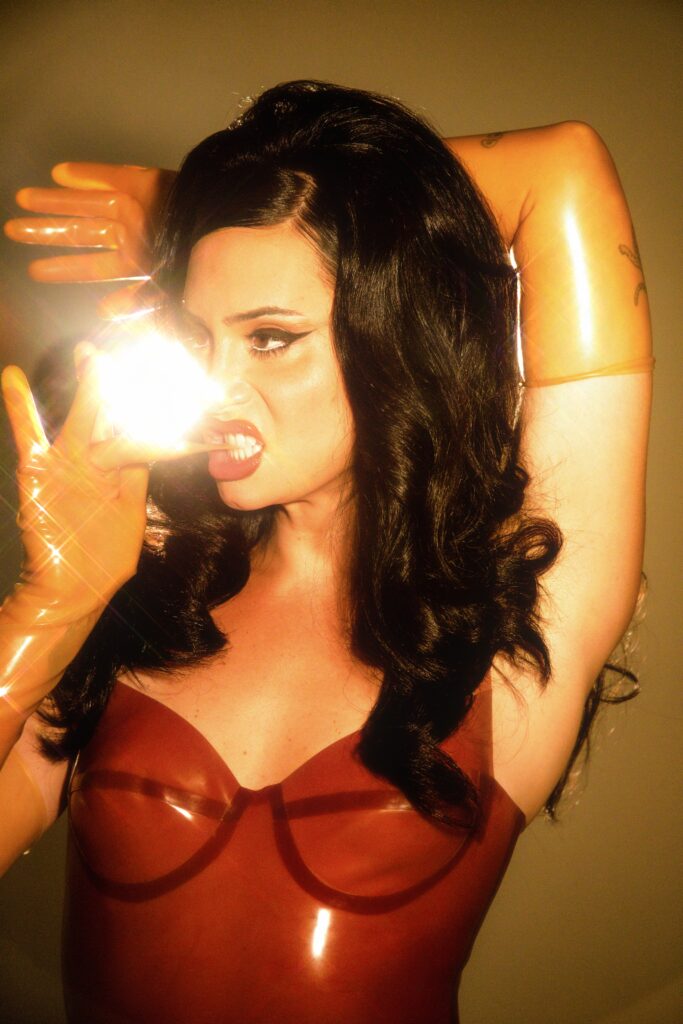
Mel 4Ever in conversation with Bernardo Alves
02/10/23
Photographer/Stylist: Shane Reynolds @chainreynolds
Makeup/Hair: Rory Alvarez @badboyrory
Assistant: Dylan James @crimson_catalyst
Talent: Mel 4 Ever @mel4ever
PR: Robbie Manulani Soares @iammanulani
Style Credits: Latex pieces are all TABLEAUX VIVANTS @tableaux_vivants
Striped Coat and Skirt and tank are TANNER FLETCHER @tanner.Fletcher


